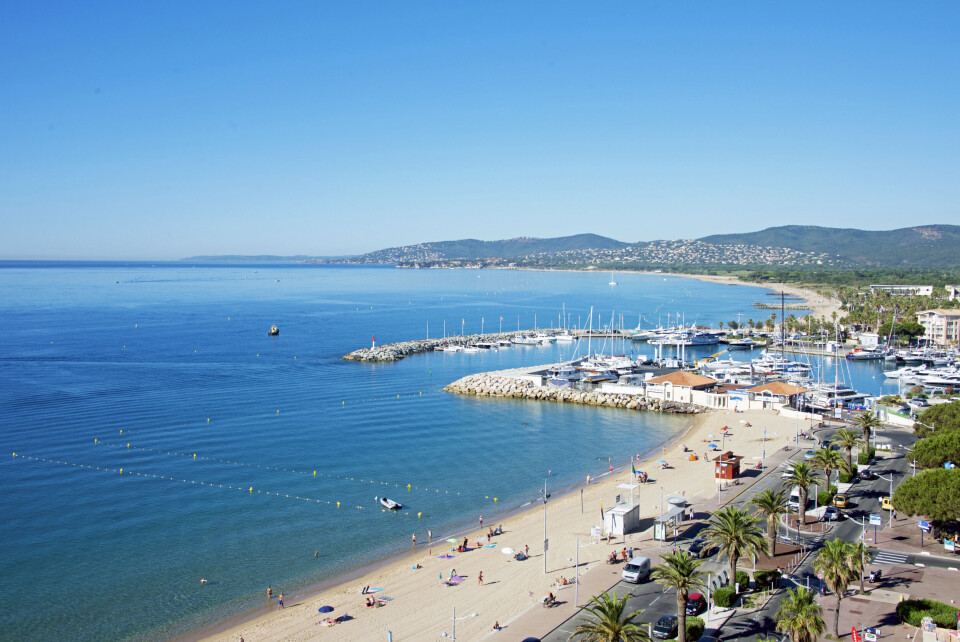-
Occitanie copper phase-out ramps up – how it will affect residents
There are some simple steps you can take to prepare for the switchoff
-
Which cars are stolen the most in France and why?
Perhaps surprisingly, the higher-end vehicles are not the most targeted
-
Several wolf sightings in centre of Frejus, Var
Rules have been relaxed around shooting wolves that threaten livestock
French seaside town bans bathers from wearing burkinis
The mayor of Fréjus said burkinis ‘run counter to our fundamental republican principle of secularism

The mayor of a popular seaside town in south-east France has issued a decree banning the burkini from beaches, citing “hygiene and safety” reasons.
The burkini - a word that comes from ‘burqa’ (a full-covering garment worn by some Muslim women) and ‘bikini’ - is a type of swimming costume that covers the entire body, including arms, legs, and hair (but not the hands, feet, or face). It is sometimes worn by Muslim women who wish to swim but maintain what they see as modesty.
David Rachline, the mayor of Fréjus - situated between Cannes and Saint-Tropez - who is from the far-right party Rassemblement National, published a ban on the wearing of burkinis in the public seaside space in the town on Wednesday (August 2).
He explained the decision was made to “ensure the safety of swimmers [and] to avoid complicating coastguard operations in case of the start of a drowning incident”.
In a statement, authorities in Fréjus said 362 drowning incidents (both non-fatal and fatal) had been recorded in France from June 1 to July 12, 2023.
Read also: French beaches do not have enough lifeguards for August
“It is also essential to ensure prevention and to enforce common sense rules,” Mr Rachline said in his press release. “Wearing a large and covering outfit is not compatible with basic hygiene rules, within the context of the public maritime space.”
‘Republican principle of secularism’
Mr Rachline issued a similar decree in Fréjus last year, days after the mayor of Grenoble, Eric Piolle, had - in contrast - allowed burkinis and all kinds of swimwear in public swimming pools in his city.
But Grenoble’s ruling was overturned by the Conseil d’Etat, France's supreme court for administrative justice. It said that it could not allow "selective exceptions to the rules to satisfy religious demands". This is because France already has strict laws on the types of swimming outfits that can be worn in public pools, and on outward displays of religious expression in public institutions.
Read more: Annual burkini row ‘demonises’ all five million Muslims in France
Back in Fréjus, Mr Rachline added: “I neither understand nor share such demands [the wearing of a burkini], which run counter to our fundamental republican principle of secularism.
“I see in this a sign of radical Islamism for electoral purposes and with no regard for national cohesion… as Mayor of Fréjus, the guarantor of public health and safety, [I have decided] to amend the relevant by-laws to explicitly state that the burkini is banned.”
The decree is careful to only ban people wearing burkinis from the water, and not from the entire beaches themselves; an important legal distinction.
Burkini bans backlash
Fréjus is not the only town to ban burkini-like costumes.
Since 2012, the town of Mandelieu-la-Napoule (Alpes-Maritime) has attempted to ban access to beaches by people who are wearing clothes that “do not respect the hygiene and safety rules”. However, it has faced criticism and legal challenges to this stance.
In 2023, it was challenged in court by the human rights campaign group la Ligue des droits de l'Homme.
Initially, the court ruled in favour of the mayor Sébastien Leroy and said the rule “prevented public order disturbances…without seriously and manifestly illegally infringing" freedoms.
However, the Ligue then appealed to the Court of Cassation, and on July 17, 2023, the highest administrative court, le Conseil d'État, suspended Mandelieu-la-Napoule’s decree. It said that the ban on beach access could only be justified in the event of “a current and proven risk to public order”.
The council said that “banning access to beaches for people wearing clothing ostensibly expressing a religious affiliation, such as the burkini [threatens] freedom of movement, freedom of conscience and personal freedom”.
It said that the town had not managed to show sufficient threat to public order to justify the ban, and had only “referred to events that occurred seven and 11 years ago respectively [the terrorist attacks in 2016 and 2020] and the general context of terrorist threat”.
Read also
Couple who forgot clothes on beach in France spark rescue search
Marine Le Pen says French headscarf ban ‘no longer main priority’
Paris pool closes due to ‘pro-burkini’ protest
























